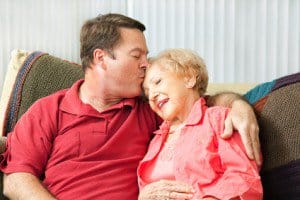
Knowing when your elderly loved ones need help is important.
As your parents grow older, it will become increasingly difficult for them to adequately take care of themselves. You may have noticed during your last visit that your dad has quite a pile of letters he is yet to open. Perhaps you saw your mother a little less tidy than the last time you had visited.
You may have gone ahead to ask if everything is fine and you got the usual “I’m doing great” response. The truth may be further than what your parents are willing to admit. In fact, most parents would not admit to their children that they are experiencing difficulties undertaking day-to-day activities. That is why it is important that you know the signs to look out for that your parents need your help. Do not limit yourself to what they tell you on the phone or via email. Go in person and check on them. What you find might surprise you.
It is normal for your aging loved one to resist wanting to leave their home for an assisted living facility or nursing home. However, if you experience one or more of these signs from your aging loved one, then a talk about senior care and the use of a medical alert device will be needed. You can research costs on our Life Alert reviews, and if you are worried about their financial situation, you can look to Medicare and Medicaid to help with the costs of a skilled nursing facility. If you are curious about elder law for your state, you can view the requirements here.
These are the first signs you should look out for:
The Once Tidy House Now Looks Dirty
As difficulty in doing typical house tasks increases, dirt and clutter start to become commonplace. Keep in mind that their eyesight might also be failing, meaning they might be failing to clean some spots simply because they cannot see the dirt. Their ability to move around might have also decreased, meaning they cannot get as much done around the house as they used to. If they are having a hard time bending, then everything that falls on the floor is left in the very place it falls. Over time, things can accumulate on the floor, causing tripping hazards. These items could knock them down as they walk around the house and cause them harm.
They Have Changed Their Eating Habits
If you were used to finding fresh meats, cheeses, fruits, and vegetables every time you visited your parents, it should worry you if you don’t find the quantity and quality of foods you’re used to seeing. Take a look at the kitchen cabinets and their refrigerator. What do they have there? Can you find any fresh vegetables and fruit? Talk to them about cooking and weigh their responses. If you find that they are not as comfortable discussing the idea of cooking a meal, or that they are eating boxed meals a little more often than they usually do, be concerned. If they have also lost considerable weight, consider taking action.
Unpaid Bills Are Piling Up
If your parents have a considerable pile of unpaid bills, find out why. It could be that they are struggling to meet all their expenses, but don’t want to tell you. It could also be a sign that they are suffering from memory loss or early Dementia and have lost track of what bills need to be paid and when. Furthermore, it is possible that the unpaid bills are part of the general disorganization that their life might be becoming.
They Are Skipping Taking Their Medication
As their bodies become more and more frail, old people’s need to take medication increases. However, you may find that your parents have been skipping taking their doses as advised by their doctor. You may also find that they are taking more per dose than stipulated in the prescription. Missing doses could affect their health and taking more medication than the doctor’s recommendation could have catastrophic outcomes. Set-Up pill boxes for them weekly so they know what they need to take each day.
Overall Cleanliness
If you’ve noticed a change in your loved one’s hygiene habits, it could be a sign they need caregiving assistance. They may be overwhelmed by getting in the shower and afraid to slip and fall or they may just simply be forgetting their proper hygiene routine.
Unexplained Bruises or More Frequent Trips to the Doctor/ER
Your aging loved one may be having a difficult time walking or with their balance, but they might be afraid to admit it. If you notice they have been injuring themselves more frequently or see bumps and bruises on their body, it may be time to call in help.
Showing Signs of Depression/Loneliness
Perhaps you’ve noticed your loved one not wanting to get out of bed or missing outings with their friends and family. They may have even lost interest in hobbies and have lost weight. These all may be warning signs of depression that will need to be treated by a health care professional.
Again, if you’ve experienced any of these signs with your aging parent or loved one, it may be time to start care planning. Your parent’s aging is a normal part of life. It is up to their loved ones to look for these signals that they need additional care. Health conditions and home safety are the biggest concerns of children helping aging parents. There are plenty of options available for when it comes time for caregiving decisions. Whether it be taking part in family caregiving or using a skilled nursing facility, you will be doing your parents a favor by looking out for these early warning signs.
You may also be interest in reading: 83 Year Old Women Uses Medical Alert to Call for Help After Break-In and Technology That Makes Aging At Home a Viable Alternative To a Nursing Home.


